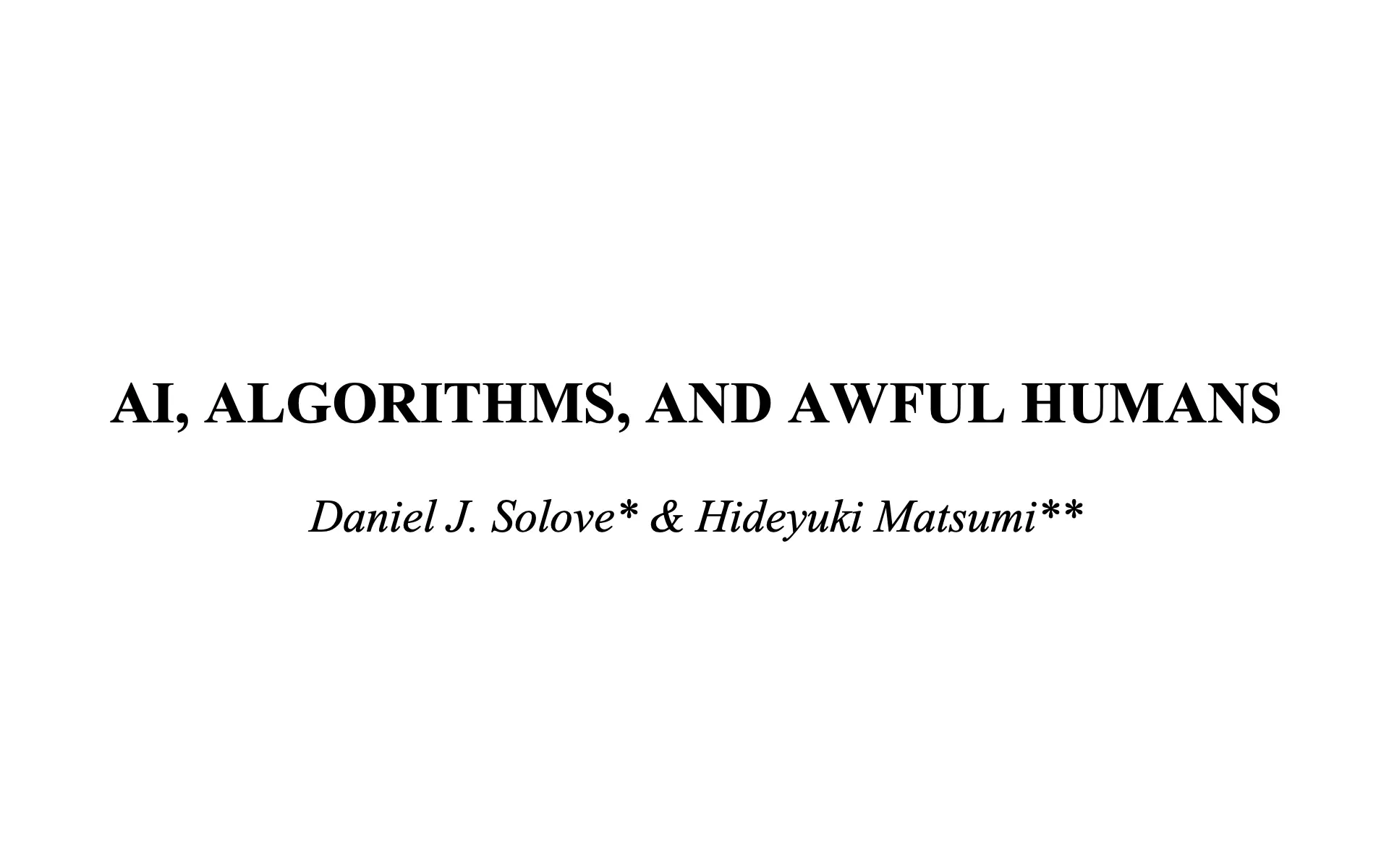Study warns of AI pitfalls in human decisions: calls for cautious integration
New research highlights challenges in combining AI and human judgment for complex moral and ethical decisions.

A profound shift is occurring in how many decisions about human lives are made, with machines taking on increasingly significant roles. A recent study published in the Fordham Law Review raises important questions about the effectiveness and appropriateness of using artificial intelligence (AI) and algorithms in decisions involving complex human factors.
The study, conducted by Daniel J. Solove from George Washington University Law School and Hideyuki Matsumi from Vrije Universiteit Brussel, examines the growing trend of using AI and algorithms in crucial decisions such as criminal sentencing, hiring, and education. Their findings suggest that the integration of machine and human decision-making is far more complicated than many policymakers and AI enthusiasts assume.
According to the researchers, "We contend that algorithmic decision-making is being relied upon too eagerly and with insufficient skepticism. For decisions about humans, there are important considerations that must be better appreciated before these decisions are delegated in whole or in part to machines."
The study identifies several key issues with algorithmic decision-making in human affairs:
Quantitative vs. Qualitative Judgments
Algorithms excel at processing quantifiable data but often struggle with qualitative aspects of decision-making. The researchers argue that "When data is ingested into AI systems, the data must be shucked of extraneous information that isn't digestible for the algorithm." This can lead to an oversimplification of complex human issues.
Emotional and Moral Considerations
Current AI systems lack the capacity for emotional understanding and moral reasoning, which are crucial components in many decisions involving human welfare. As the study points out, "Making decisions about humans involves special emotional and moral considerations that algorithms are not yet prepared to make—and might never be able to make."
Conflicting Goals and Tradeoffs
Many decisions involve balancing multiple, sometimes contradictory, objectives. The researchers note that "Machines cannot readily resolve these conflicts," and that "machine decision-making can lead to certain goals being privileged over others because they are more achievable by machines, but this might not necessarily be the optimal resolution to a tradeoff between goals."
Human-Machine Integration Challenges
The study highlights significant difficulties in effectively combining human and machine decision-making. The authors argue that "Far from serving to augment or correct human decision-making, algorithms can exacerbate existing weaknesses in human thinking, making the decisions worse rather than better."
The researchers warn that "a 'hybrid system' consisting of humans and machines could 'all too easily foster the worst of both worlds, where human slowness roadblocks algorithmic speed, human bias undermines algorithmic consistency, or algorithmic speed and inflexibility impair humans' ability to make informed, contextual decisions.'"
Hidden Human Dimensions
The study also raises concerns about the hidden human dimensions in supposedly objective machine decisions. As the authors note, "AI is far from human-free; humans are involved in nearly every aspect of AI at every stage of development." This can create a false sense of objectivity, masking underlying prejudices or flawed assumptions.
Implications for Policy and Practice
The findings have significant implications for policymakers and organizations implementing AI-driven decision-making systems. The researchers argue for a more nuanced approach to integrating human and machine decision-making, with careful consideration of where and how humans should be involved in the process.
"Merely uniting humans and machines is naïve and simplistic," the authors state. "Extensive thought must be given to the roles humans do play and should play in the process, as well as where they should be added and how they should perform their roles."
The study suggests that in many cases, the use of algorithmic decision-making tools may be premature, particularly in areas involving complex human factors. The authors call for a reevaluation of the goals and structures of decision-making processes before introducing AI systems.
Looking Ahead
As AI continues to advance, the challenges identified in this study will likely become increasingly relevant. The researchers stress the need for ongoing scrutiny and research into the effects of algorithmic decision-making on human lives and society at large.
They conclude that while AI and algorithms have the potential to improve decision-making in certain areas, their limitations in dealing with the complexities of human affairs must be carefully considered. "Ultimately, the goal should be good decisions, and such decisions are quite varied and contextual. There is no substitute for good judgment."
Key Points
- Algorithms excel at processing quantifiable data but struggle with qualitative aspects of decision-making
- Current AI systems lack emotional understanding and moral reasoning capabilities
- Integrating human and machine decision-making is more complex than often assumed
- Humans tend to exhibit "automation bias," trusting algorithmic output without sufficient skepticism
- Algorithmic decision-making can create a false sense of objectivity, masking underlying biases
- Policymakers need to carefully consider where and how to involve humans in AI-driven decision processes
- More research is needed on the effects of algorithmic decision-making on human lives and society

